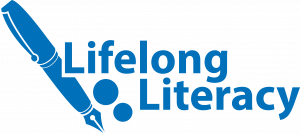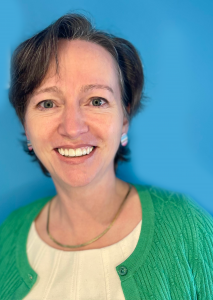
- Instructor: ies

Course Provider: Lifelong Literacy
| 215USD | Flexible | 8 Hours | Self-paced | Certificate available |
This guide to high impact literacy teaching will help raise your understanding and application of the components of successful writing.
The overarching theme is that writing needs to be taught explicitly, scaffolded expertly, and practised well.
The course consists of background information on the process of writing, what can go wrong, and research-informed strategies to help teachers deliver even higher quality literacy instruction in their classrooms right away.
At Lifelong Literacy, we fully expect our students to achieve reading fluency with comprehension and we are never disappointed. However, when it comes to writing, students can sometimes miss out on essential early teaching that has a lifelong effect on their ability to write. Lyn Stone’s answer to this is embodied in Writing for Life.
COURSE STRUCTURE AND CONTENT
There are three major sections in this course, with an additional “Where to next?” section at the end.
Each of the three sections has the following structure:
■ video explainer (with duration in brackets, so you can pace yourself)
■ pdf containing core principles within the section
■ a quiz to revise and test your knowledge
■ a forum to share ideas, write queries, post feedback and chat with our online community of practice
■ optional resources for further reading (these are continually updated and added to and we happily take suggestions!)
COMPLETION CRITERIA
The most significant completion criterion is your own perception that you’ve got the most out of it. We do ask, though, that you participate in two out of the five forums along the way. Of course, as course admins, we can see whether or not you’ve opened the pdfs and watched the videos too, so we wouldn’t be that enthusiastic about certifying anyone who hasn’t glanced at the material. We just hope that you do much more than glancing.
We’ve tried to give you as much information as possible, including videos, pdfs, worksheets, quizzes and best of all, forums in which you can collaborate with your colleagues and me to get the very best out of the material
Participants will receive:
■ A printable manual
■ Downloadable slides from all the pre-recorded presentations
■ Worksheets for classroom application
■ A certificate for 8 hours of PD
Course content:
Session 1: Underlying Skills and Knowledge for Writing
We start by exploring the components of writing and the critical processes that underlie writing fluency. We touch on:
■ Orthographic mapping
■ Working memory
■ The simple view of writing
We then explore a way to look at the parts of speech that builds a valuable set of terms you can use in the classroom to help with concept development and feedback.
We will cover nouns, pronouns, verbs, adjectives, adverbs, prepositions and conjunctions in ways that go beyond “A noun is a naming word…a verb is a doing word…” and still makes complete sense.
Session 2: Sight Words: How to place them into long term memory for instant and effortless recall
At Lifelong Literacy, our goal is to teach all of our students to read and write fluently. To do this, we have a list of words they need to learn as a priority. It’s called The Survival List and it constitutes some of the most common words in the English language, as well as subject-specific words for that particular student.
There are plenty of word lists readily available, such as the Dolch or Fry or Magic 100 lists, but they contain a mixture of simple and complex patterns. For instance, in the Dolch list, the word big (a simple 1:1 CVC pattern) is right there with away (a two-syllable word containing a digraph) and said (an unusual pronunciation of the digraph , which only really occurs in this word and in some accents in the word again, but which follows the grammatical/etymological pattern of lay and pay).
The amount of times we see children being given homework requiring them to learn this mishmash of random patterns is astonishing. It is simply not viable for many children.
As a solution, we have extracted the words that don’t have a transparent code structure and have placed them in families containing similar patterns. We use a simple marking system and a four-step analysis (called The 4-Step Process) so that students become aware of the words’ morphological and etymological structure and kinships.
The Survival List and 4-Step Process therefore are templates to teach any words for automatic recall when writing.
We use these techniques for two reasons:
- Because knowing how to read and spell the words on their list will help them become fluent readers and writers as quickly as possible and
- Because the techniques used to learn these words can extend to other words with complex patterns that students can teach themselves, thus helping them to survive the onslaught of increasing complexity and expectation as their academic career unfolds.
Session 3: What About Writing?
With high quality initial instruction, the majority of children can learn to read, regardless of diagnosis. But what about writing? Achievement of accurate, fluent written expression requires instruction and practice far beyond that needed for reading. Partly as a result of this, the value of high quality, early writing instruction can be neglected or downplayed in primary school, thus leading to large populations who fail to develop appropriate levels of written expression.
Teaching all children to write is hard, but worth the effort. In this module, we explore:
■ Matthew effects in writing and how this can be combatted
■ Muscle memory
■ Metalanguage
■ Phrases, clauses and sentences
■ How narrative writing dominates the educational landscape and why that needs to change
■ Quality vs. quantity
■ Dysgraphia
We also look into ways in which current practice in schools can be geared towards getting all children to improve their handwriting skills, as well as where to draw the line and get the most out of technology.
How it All Works
This course is a series of three online modules and is intended to be accessed over the course of three months. During that time, Lyn and the Lifelong Literacy team will monitor the forums and feedback sections regularly and will respond to queries and assignments.
The modules contain videos, pdfs, quizzes, links and forums where you can collaborate, ask questions, make comments and upload files. It is a collaborative space and has already been well-populated with excellent suggestions and work samples.
Learning Outcomes
■ Understand the background processes at play when writing develops
■ Have a deeper and broader understanding of what can go wrong for many children who struggle with writing and how to fix that
■ Have tools to use to improve the mechanics and the conventions of writing in all their students
Course Commitment
8 hours to be done asynchronously over a maximum of three months. No extra work to submit.
Schedule
Flexible Schedule / Self-paced

Lifelong Literacy is a high-quality, low-variance literacy consultancy. Our mission is to help bridge gaps in education in the following ways:
■ by building bridges from research to practice with research-informed publications, resources and presentations,
■ by fostering improvement in teacher knowledge, with training and mentoring on a individual, whole school, and school cluster basis,
■ by helping students catch up and excel in learning and academic achievement by providing custom-made, specialized online and face to face tutoring.
Founder

Lyn Stone
Lifelong Literacy’s founder, Lyn Stone, is a Scottish educational linguist and author. She lives and works in Victoria, Australia where she runs her consultancy and tutoring practice.
Lyn creates research-informed professional development seminars and resources for teachers and other education professionals. She is a sought-after public speaker and regularly makes appearances at worldwide conferences and on live radio.
Her goal is to help educators awaken linguistic curiosity in their students using creative, engaging tools and strategies that are based upon scientific consensus as to what constitutes best practice.
Lyn has been trained in numerous major literacy acquisition programs and pedagogical approaches (Lindamood LiPS, Spalding, Read Write Inc., Sounds Write, Explicit Direct Instruction, Auslan and Makaton, to name but a few), and it is due to her breadth and depth of knowledge on what works and doesn’t work in teaching that she is highly qualified to assist schools to make decisions on what to accept, and equally importantly, on what to reject when selecting resources.
Lyn has extensive classroom-teaching experience and is regularly employed by schools on a contractual basis to provide specialist literacy education for groups of at-risk students as well as training for teachers.
Her three bestselling books, Spelling for Life, Language for Life and Reading for Life have attracted international acclaim.

Lyn Stone
Lifelong Literacy’s founder, Lyn Stone, is a Scottish educational linguist and author. She lives and works in Victoria, Australia where she runs her consultancy and tutoring practice.
Lyn creates research-informed professional development seminars and resources for teachers and other education professionals. She is a sought-after public speaker and regularly makes appearances at worldwide conferences and on live radio.
Her goal is to help educators awaken linguistic curiosity in their students using creative, engaging tools and strategies that are based upon scientific consensus as to what constitutes best practice.
Lyn has been trained in numerous major literacy acquisition programs and pedagogical approaches (Lindamood LiPS, Spalding, Read Write Inc., Sounds Write, Explicit Direct Instruction, Auslan and Makaton, to name but a few), and it is due to her breadth and depth of knowledge on what works and doesn’t work in teaching that she is highly qualified to assist schools to make decisions on what to accept, and equally importantly, on what to reject when selecting resources.
Lyn has extensive classroom-teaching experience and is regularly employed by schools on a contractual basis to provide specialist literacy education for groups of at-risk students as well as training for teachers.
Her three bestselling books, Spelling for Life, Language for Life and Reading for Life have attracted international acclaim.
Jane Lobsey, PYP Coordinator and Joe Schaaf, N-12 Curriculum and Continuum Coordinator
International School of Tianjin
“When embarking upon a curriculum review of reading instruction at our school, we discovered Lyn Stone’s book, Reading for Life, which was read by our review team. This text was critical in supporting our understanding of the science of reading, affirming our understanding of the best, most evidence-based practices in reading instruction. As we continued our journey and began to reflect on and modify our practices, we were fortunate enough to connect with Lyn, who was able to answer our questions about everything from phonics programs to morphology and from teacher accents to schwa! Lyn has provided a model of support which has included consultancy with the leadership team, leading professional learning sessions which catered for teachers from Nursery to Grade 12, and observing and providing feedback on explicit phonics lessons with teams of teachers. Some of our staff members have also engaged in her online courses, which were extremely valuable. When teachers were asked what they needed to support reading instruction, one staff member commented, “More Lyn Stone!” Lyn’s friendly and witty demeanor captivates staff during professional learning, however her true value is in her depth of knowledge in all areas of literacy and language.“
